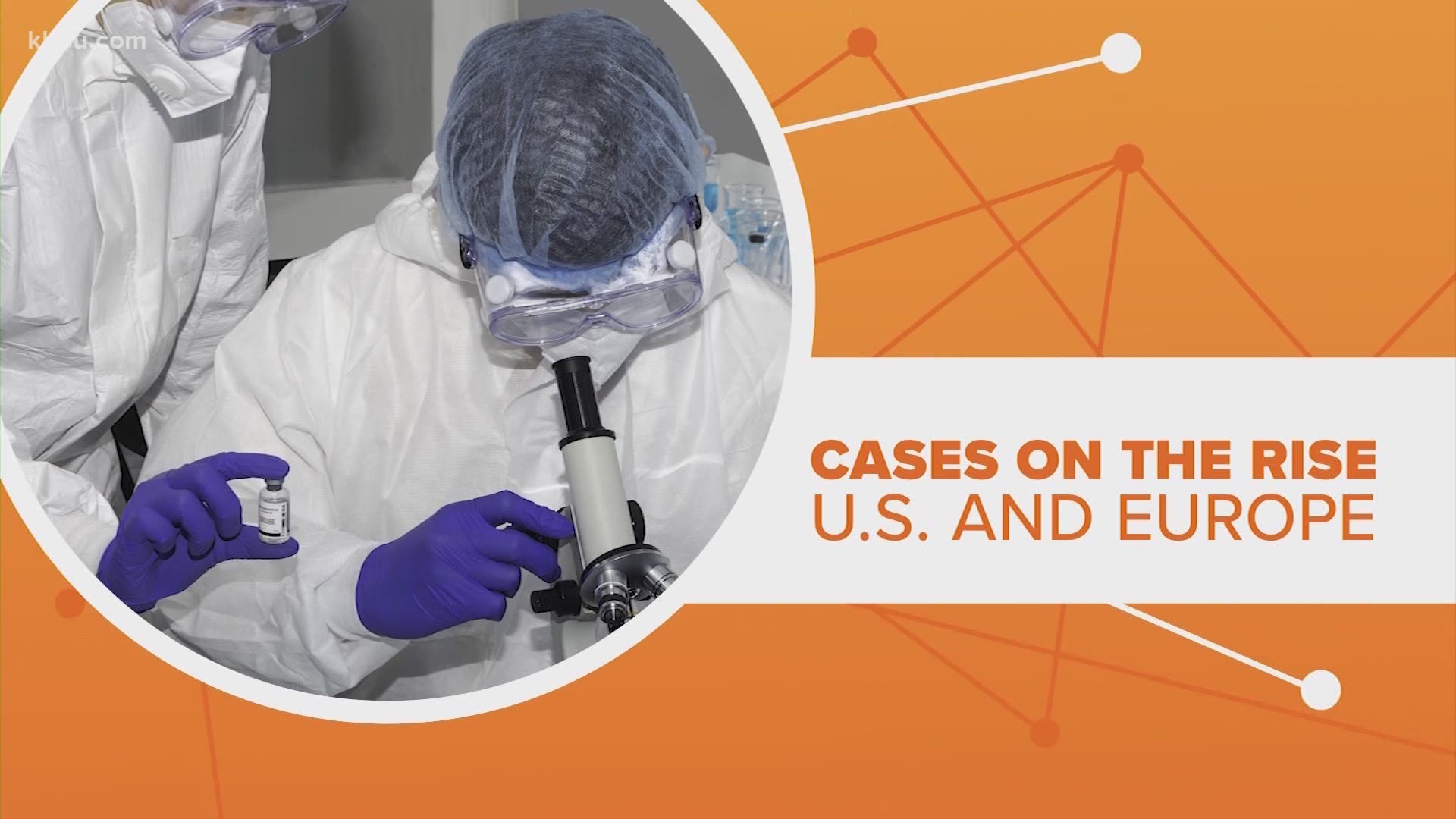HOUSTON — More than 60,000 Americans have rolled up their sleeves for injections as part of ongoing clinical trials for a COVID-19 vaccine.
“The volunteers are the real heroes of this pandemic,” said Dr. Matt Hepburn, the vaccine development lead for Operation Warp Speed – an effort led by the Department of Health and Human Services and Department of Defense that aims to deliver safe and effective COVID-19 vaccines to all Americans by 2021.
Operation Warp Speed is considering a total of six vaccine candidates and will continue to rely on clinical trial volunteers for the remaining candidates.
Volunteers are being recruited in Houston, Austin, San Antonio, Dallas, Fort Worth and McAllen.
“The goal is safe and effective vaccines. It’s not cutting corners. The process we are talking about is the standard process set by the FDA,” said Hepburn, an infectious disease physician with the DOD.
Hepburn explained the clinical trial process begins with Phase 1 early safety studies – or the first time a vaccine candidate is given to humans. Phase 2 looks for an immune response. Phase 3 is a larger study to see if the vaccine is effective – while continuing to learn about safety along the way.
“What we have done is taken that standard process and increased the numbers in that process substantially, so we can understand the safety and effectiveness of the vaccine sooner,” Hepburn said.
Where a typical Phase 3 trial may involve 3,000 people, the COVID-19 trials each have 30,000 or more participants.
The randomized, double-blind, placebo-controlled studies mean most people involved won’t know who receives a vaccine candidate or a placebo injection, which would provide no protection from the virus.
“You don’t know if you’re getting a placebo or a vaccine – so it takes a special person to say, ‘I will get either one.’ This gives us a direct comparison to see if the shot really does make a difference,” Hepburn said.
The difference is ultimately determined by the number of people who get COVID-19.
“We’re waiting on people to get sick from COVID-19. It’s very unfortunate,” Hepburn said. “The only way we can tell if a vaccine works or not is to see how many people get sick in the placebo group and the vaccine group, and we hope that difference is very dramatic.”
Because the studies are blinded, the information about who receives the placebo or vaccine is tightly controlled. An independent data safety monitoring board is one of the few that have access to this information, and is responsible for conducting a statistical comparison to determine whether the vaccine is effective.
“The reason we chose these six vaccine candidates is that these are the ones we believe are most likely to work in our accelerated timeline,” he said, noting the Biomedical Advanced Research and Development Authority employed robust evaluation standards to the determination based on potential and alignment with the Operation Warp Speed timeline. “Hundreds of scientists and experts have looked at the science and said we think these vaccines will protect. The information is public and published. We want the scientific community to see all of this.”
Hepburn’s 23-year career as an Army physician and now as a civilian with the DOD, has largely focused on pandemic preparation and the rapid development of vaccines and treatments against infectious disease threats.
While Hepburn said he would encourage both his parents and college-aged children to volunteer, he noted that it’s an individual decision that is very personal.
“It takes a special person,” he said. “We are all suffering from this pandemic. From little inconveniences to people losing their jobs to watching friends and family members get sick. There is an element who say, ‘What can I do about this?’”
One opportunity, Hepburn noted, is the chance to volunteer for these types of clinical trials.
“There are so many going on,” he noted. “If you’re sick, there are trials to see whether the treatments work. This is one way you can really help out.”
All volunteers are just that – volunteers. All U.S.-run trials have strict ethical standards, and at the top of that list is that participation is voluntary.
“You must understand the risk, benefits and the inconveniences of what you are signing up for,” Hepburn said. “A lot of people don’t want to take the risk or don’t have the time. But in my mind, if you are looking for a way to have an impact on this pandemic, serving as a volunteer is tremendously helpful.”
Hepburn has spent more than two decades in the medical profession working in policy and clinical trial roles where the unifying message is that infectious diseases can become pandemics that can be devastating. For him, the COVID-19 crisis is something for which he has been preparing for his entire career.
“It was really, frankly, the honor of my life to be called to serve in this mission which I think is so important. I am able to leverage all the experience I’ve gained to be part of what is certainly one of the best teams I have ever worked with to execute this very important mission.”

